Musician and People's Teacher Hoang Kieu has made many great contributions to the cause of inheriting and developing Vietnamese folk music and traditional stage arts in the second half of the 20th century and the beginning of the 21st century. In particular, his contributions to the Cheo stage span many aspects, from composing music, to writing scripts, directing, scientific research and training Cheo artists.
That was the comment of Major General, Musician Nguyen Duc Trinh, Chairman of the Vietnam Musicians Association at the discussion "People's Teacher, Musician Hoang Kieu with the development of Cheo theater and music" held on August 9 to celebrate the 100th anniversary of his birth.
The person who keeps the 'soul of rowing' for the nation
According to Major General, Musician Nguyen Duc Trinh, Mr. Hoang Kieu is an excellent manager, music composer, scriptwriter and scientific researcher.
In the field of training, he is one of the founders of the development of the Hanoi University of Theatre and Cinema in general and the National Theatre industry in particular. He is a dedicated and visionary manager who is always innovative and has the desire to bring “science, nationality, and popularity” into traditional arts training.
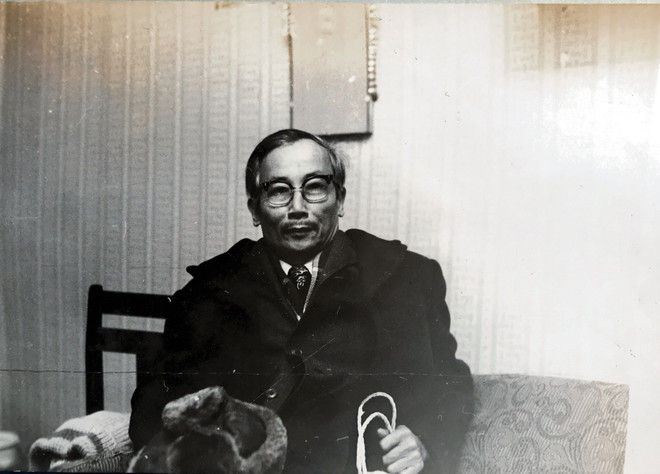
He is also a pioneer in building programs, curriculum and the aspiration to build an experimental theater to combine learning with practice. He understands the uniqueness of traditional arts, so he recruited students to enter the University system with a junior high school degree to create a source for high-quality university training (course 1, University classes of actors, musicians of Traditional Drama, full-time 7 years have proven that).
In the field of composition, musician Hoang Kieu was the first person to compose and introduce the form of orchestration and backing singing into the art of Cheo, demonstrating scientific and professional qualities. He composed music for over 20 Cheo plays, the most typical of which is "Suy Van" - a play imbued with folk and scholarly qualities. It can be said that this is the pinnacle of Cheo musical art from 1962 to the present.
Commenting on the career of musician Hoang Kieu, Dr. Tran Dinh Ngon, former Director of the Vietnam Theatre Institute, said that musician Hoang Kieu was a pioneer in recording and collecting ancient Cheo melodies from artists, then researching and compiling them into books. At the same time, he was also the first person to compose instrumental music for ancient Cheo plays that were revised and adapted, as well as some Cheo plays with new themes.
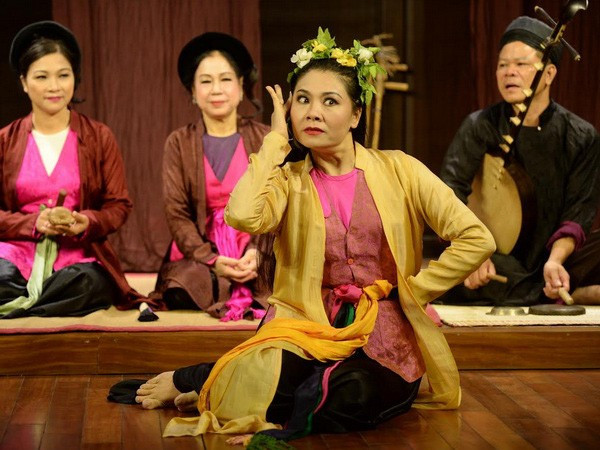
His compositions in the plays "Suy Van" and "Quan Am Thi Kinh" have become models for younger generations of musicians to follow.
Musician Hoang Kieu chaired the organization of teaching and training a class of musicians, who later became key players in professional Cheo troupes throughout the North.
Musician Hoang Kieu's students have developed the knowledge and experience from the Cheo musician class he trained, making an important contribution to creating new Cheo plays that have been extremely successful in professional theater festivals nationwide.
In the field of scientific research, musician Hoang Kieu, in collaboration with musician and Cheo researcher Tran Viet Ngu, wrote and published the first research works on Cheo art such as "Initial steps to understanding Cheo stage" or "Understanding laughter in Cheo."
Their books opened the way for elaborate and detailed scientific research on traditional Cheo theatre, creating a foundation of knowledge and basic theory for Cheo theatre that later generations of researchers continued to inherit and develop from those initial works.
“From a musician with a passionate love for Cheo, he devoted almost his entire life to the new Cheo stage - often called revolutionary Cheo or modern Cheo. He became one of the great trees of Vietnamese Cheo art in the late 20th and early 21st centuries,” Dr. Tran Dinh Ngon commented.
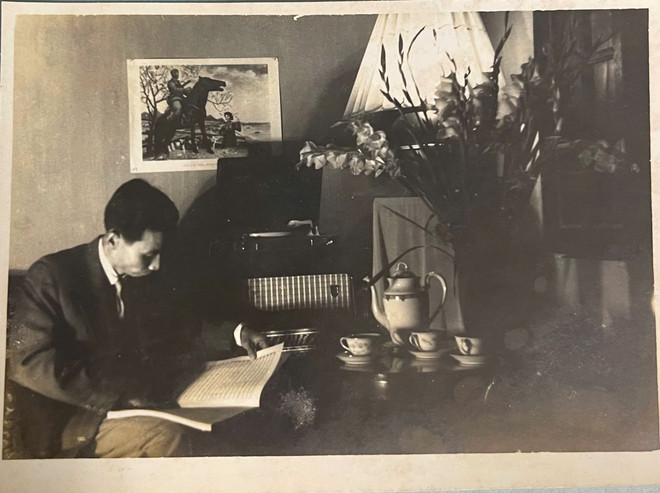
Sharing the same view, music theorist Nguyen Quang Long believes that musician Hoang Kieu's great contribution is reforming the orchestra's structure and arrangement style in a symphonic direction while still preserving the "soul of Cheo."
Before Hoang Kieu's time, Cheo orchestras were often small, simple, and had the nature of "supporting" the stage. He was the first to implement the policy of modernizing Cheo orchestras in the form of Western symphony orchestras, but thoroughly localized. At the Central Cheo Theater (now the Vietnam Cheo Theater) and piloting in Hai Phong, he built a total orchestra of 16 musicians or more, creating a rich sound quality and multi-layered dialogue with the performance.
According to researcher Nguyen Quang Long, musician Hoang Kieu was one of the first people to “transcribe” ancient Cheo melodies into musical notes. This is one of the important developments in fieldwork, collecting and archiving documents for Cheo research as well as Vietnamese traditional music.
A lifetime of hard work 'spinning golden silk'
Not only is he a "banyan tree" that shines in the traditional art of the nation, musician Hoang Kieu is also a close and caring teacher of many generations of students.
Doctor, People's Artist Do Quoc Hung, Director of the Vietnam National Academy of Music, still remembers that in 1988, the Hanoi Cheo troupe (Hanoi Cheo Theatre) recruited its second class, he was accepted and became a student of teacher Hoang Kieu.
What I remember most is the exercise the teacher taught about eye contact, expression, and how to look. At that time, the teacher had the students line up, holding a stick in his hand, thinking that if they did something wrong, he would hit them, but no, the teacher asked the students: When the teacher moved the stick, the students had to follow the same eye contact.
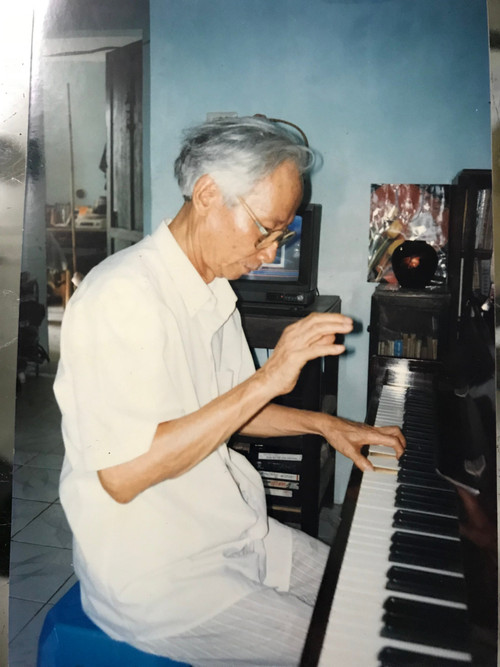
The teacher tied a red piece of paper to the end of the stick, and the students had to look at the red paper. Occasionally, the teacher would give the command: “Sad eyes,” so the students would look at the target, the red paper, and create a feeling of sadness for themselves. Then the teacher would give another command: “Brighten up your eyes,” “be happy,” and many other expressions like “anger, frustration”…
The teacher teaches eye movements in turn. When the students have mastered the basics, the teacher continues to add other movements, such as hand movements combined with eyes, or hand movements combined with legs...
“The teacher taught me from his eyes, gestures, steps, in general, the smallest details were all carefully and deeply taken care of by him. Among the words he taught me, I remember them forever and always in my own artistic journey, is the saying: 'Hand follows heart',” People's Artist Do Quoc Hung said.
In the eyes of musician Giang Son, his father - musician Hoang Kieu is a quiet, reserved person, not interested in the outside world, but devoted to traditional arts, especially Cheo. From childhood to adulthood, the familiar image that Giang Son always saw was musician Hoang Kieu sitting and writing at a wooden table all day and night.
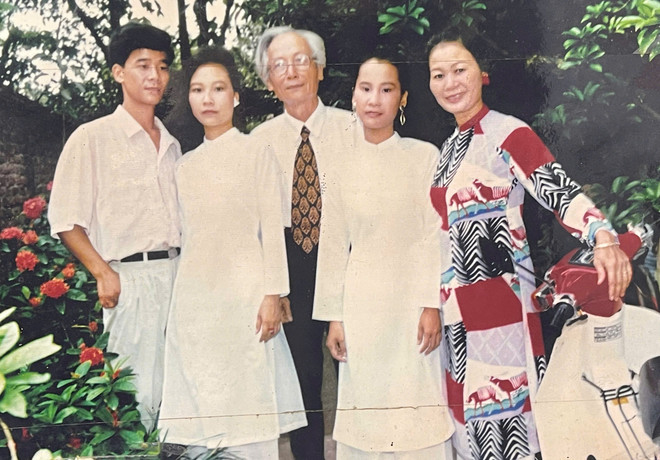
Musician Giang Son rarely discussed music with her father because he was a Cheo expert, while Giang Son pursued classical piano. She even reacted to her father because the whole family followed traditional arts, and she was the only one who felt “lost” with the piano.
“Later, my father explained to me that learning classical piano would help me grasp advanced composition techniques and then combine them with Vietnamese folk music. Now that I have enough experience in music, I can see my father’s far-sighted vision, and I am very fortunate to follow his path,” musician Giang Son expressed.
It can be said that musician Hoang Kieu has devoted his life to the country's traditional music and performing arts, a life of tirelessly "spinning golden silk" to collect, preserve, conserve, promote and develop the nation's traditional artistic values./.
People's Teacher, musician Hoang Kieu (1925-2017), real name Ta Khac Ke, was born in Hung Yen. He was an excellent manager, music composer, scriptwriter and scientific researcher. He made many great contributions to traditional Vietnamese stage arts in the second half of the 20th century and the beginning of the 21st century, especially in the art of Cheo.
He wrote many scripts such as: “Our Blood Has Flowed” (1963), “The Lamp Keeper,” “The Street Girls” (1969), “The Vegetable Seller” (1980), “A Thousand Years of Love and Hatred,” “The Bachelor’s Degree,” “The Arrogant Desire,” “The Curse of a Promise”… Among them, two works, “The Bachelor’s Degree” and “The Curse of a Promise,” participated in the National Professional Cheo Performance Festival (1995 and 2001) and won the Gold Medal and Silver Medal. The vitality of these two works still retains its value today.
In the field of scientific research, People's Teacher Hoang Kieu has many profound works left for posterity such as: "Using Cheo melodies" (1974), "Vietnamese tones and traditional music," "Studying ancient Cheo melodies" (2001), "Studying Cheo stage" (Hoang Kieu-Tran Viet Ngu), "Selected ancient Cheo melodies" (Hoang Kieu-Ha Hoa, 2007).
With the above great contributions, he has been awarded many certificates of merit, awards, orders and noble medals by the State. Notably, in 2008, he was awarded the title of People's Teacher and in 2023, he was posthumously awarded the State Prize for Literature and Arts.
Source: https://www.vietnamplus.vn/nhac-sy-hoang-kieu-con-tam-nha-to-vang-cho-nghe-thuat-truyen-thong-dan-toc-post1054748.vnp








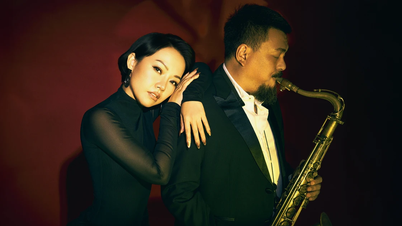
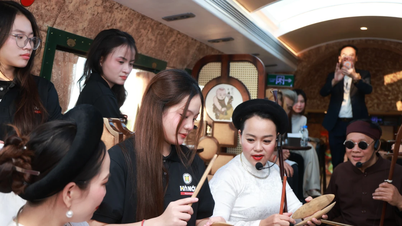

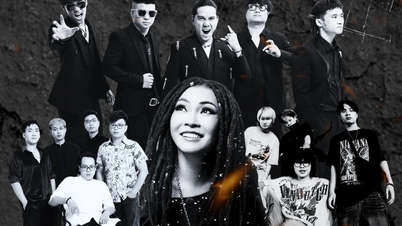
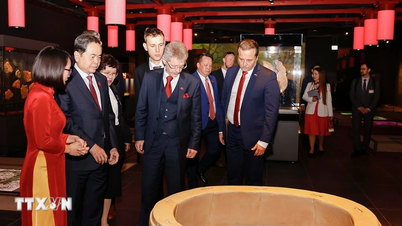

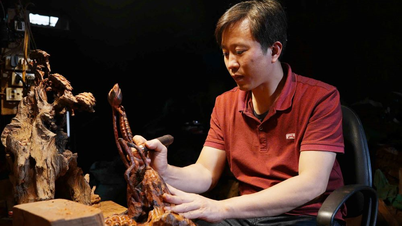


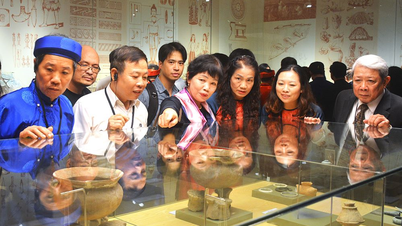
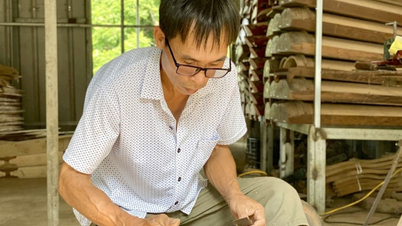
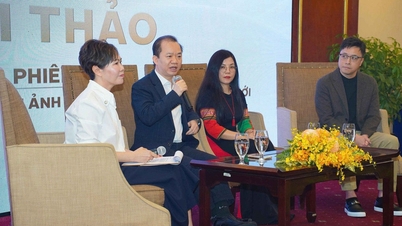







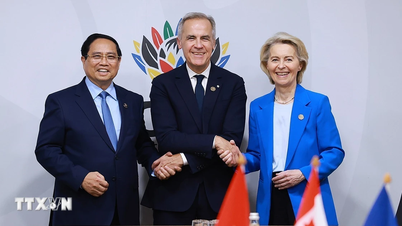
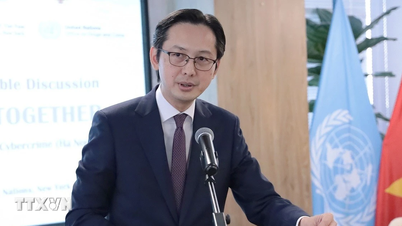
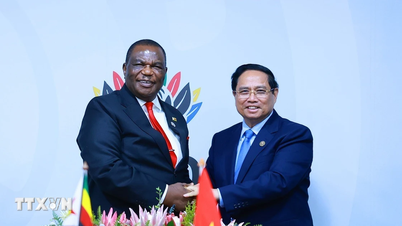
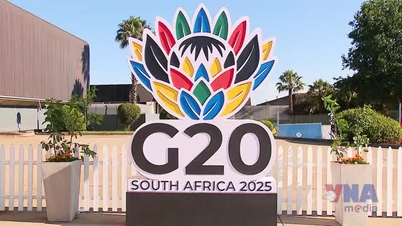
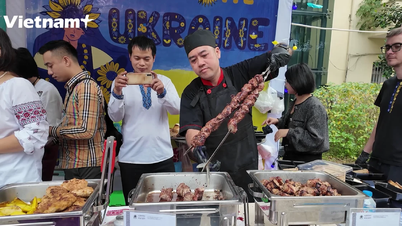

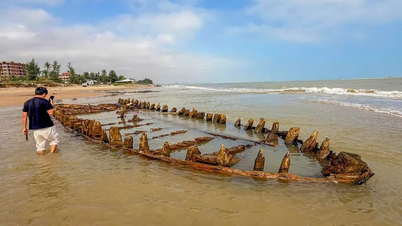

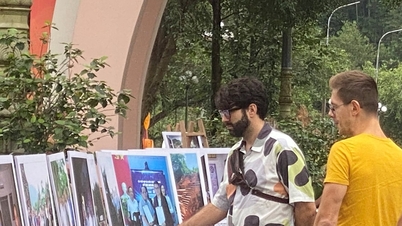

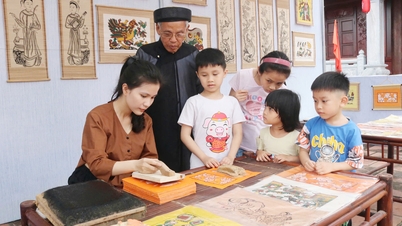

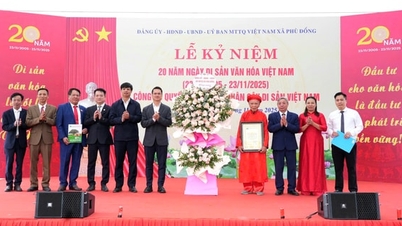




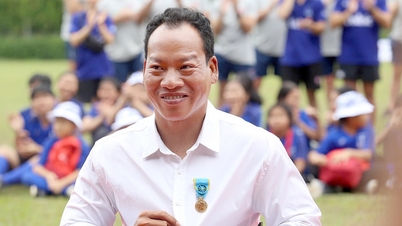

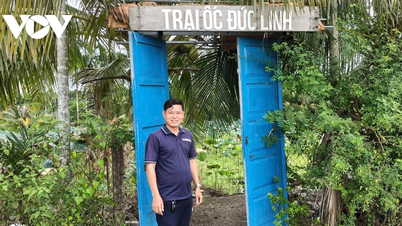

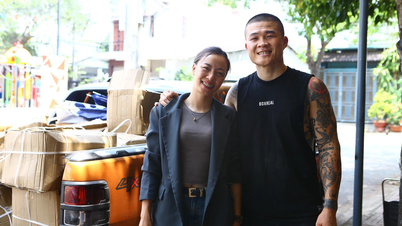

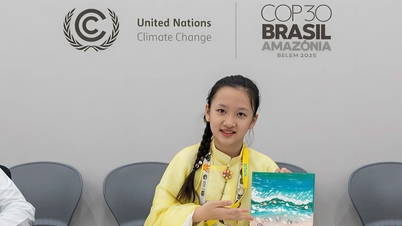

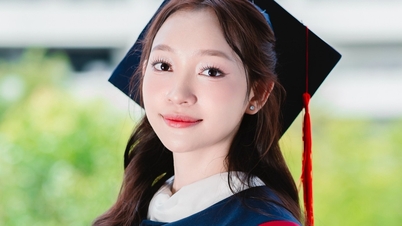

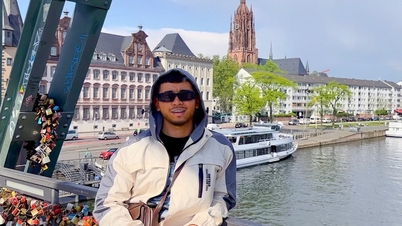















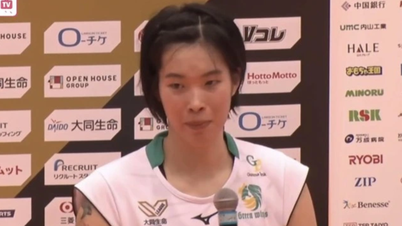
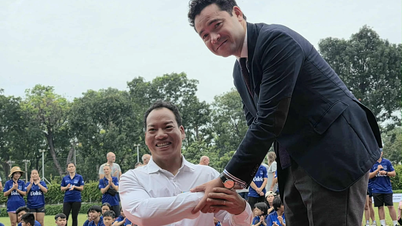



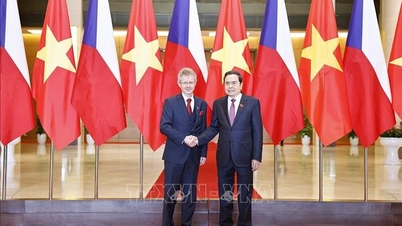


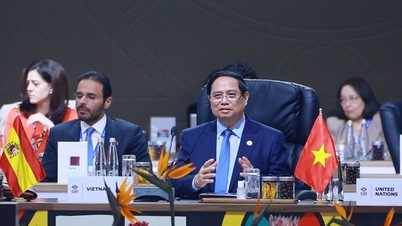





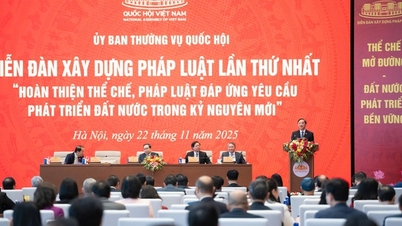

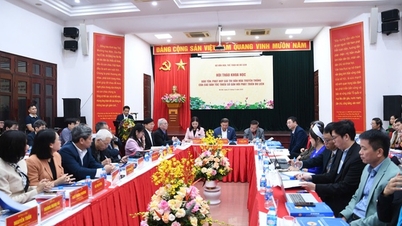
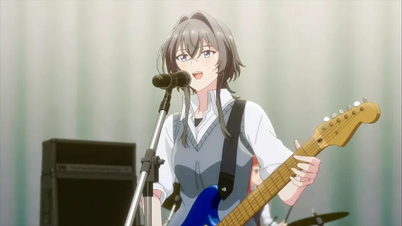


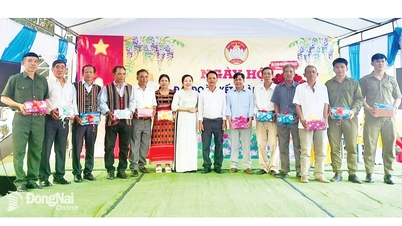

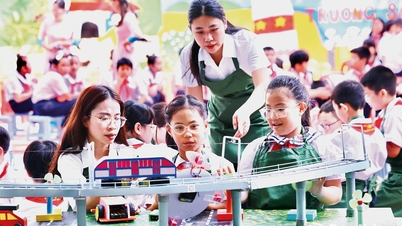















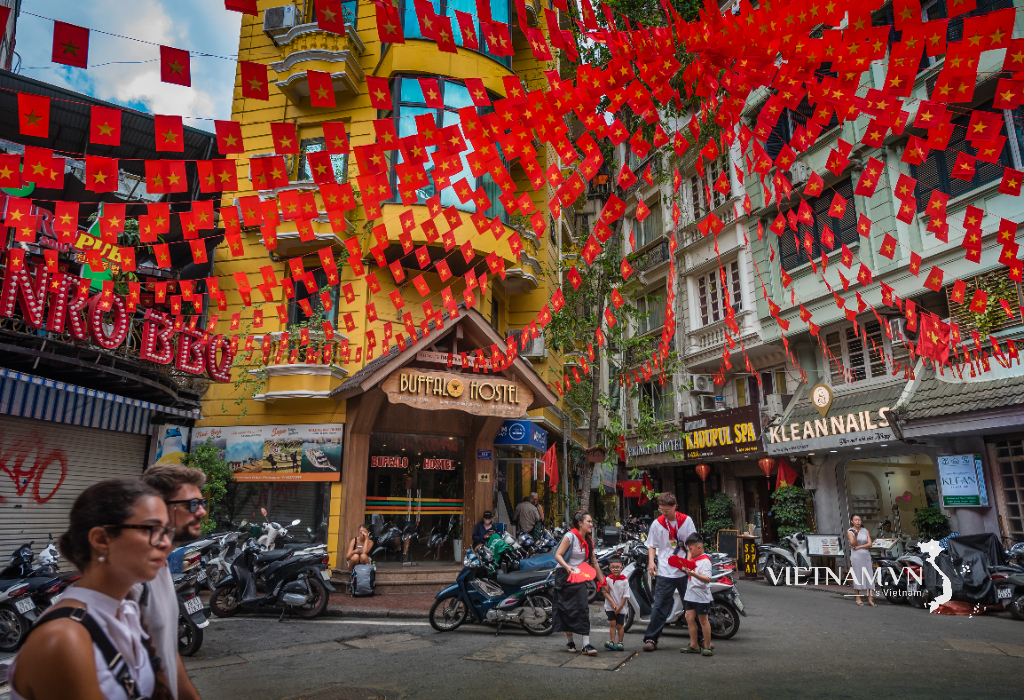

Comment (0)